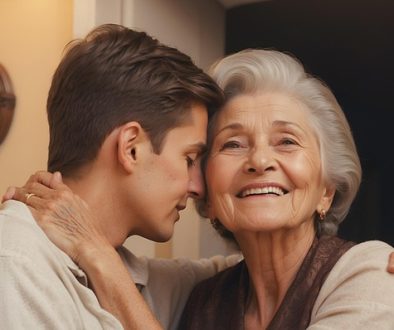Medicaid Eligibility in Florida: 2023 Community Spouse Resource Allowance
By Maureen Rulison
Caregiver Support and Resources
Long-Term Care Medicaid eligibility in Florida – or rather the financial figures determining eligibility – changes slightly each year.
When qualifying for Medicaid, individuals and married couples alike must show the government they don’t have enough money, property and other assets that could otherwise be used to pay for advanced care. In the eyes of the government, those assets SHOULD cover costs, but people have fiduciary responsibilities to their families – meaning they wish to protect those assets.
So the federal program (operated through each state) allows some provisions. Married couples with one healthy spouse not currently requiring coverage can still qualify for Medicaid under certain income and asset thresholds. Here’s where the Community Spouse Resource Allowance (CSRA) comes in, permitting the non-applicant spouse to retain enough resources to live comfortably.
Let’s Understand 2023 Florida Medicaid Eligibility Rules for Spouses
The terms used for Medicaid are downright confusing. What is a “community spouse”? It’s the non-applicant spouse who is healthy and remains at home – in the “community.” The term “institutionalized spouse” means the spouse — the applicant — may never be “institutionalized” at all and may, in fact, receive benefits covering both home and community care options. “Resources” are assets.
Medicaid helps low-income individuals and families pay the outrageously high costs of long-term care. Here in Florida, even a semi-private nursing home room can cost more than $8,600 PER MONTH! Medicaid eligibility tests like these ensure that people with sufficient assets and/or income do not artificially lower their net worth to qualify as low-income.
Although income and assets exceeding limits must be used or distributed legally and ethically, Medicaid in most states allows families to keep “resources” for living expenses. The Community Spouse Resource Allowance is one of those measures.
How Does the CSRA Work?
Medicaid, which serves individuals and families with little income and assets, ensures people meet qualifications through financial/asset disclosures and a detailed 5-year lookback analysis. But they won’t leave a non-applicant spouse (“community spouse”) without money to live independently.
The Community Spouse Resource Allowance allows the non-applicant to keep assets up to a certain amount. Florida is a 100% state for which that maximum figure in 2023 is $148,620. The applicant spouse could keep $2,000.
Ultimately, individual states determine maximum and minimum income and asset limits for Medicaid eligibility up to the states’ discretion. In 100% states like ours, non-applicant spouses are entitled to all of their joint assets up to the maximum resource allowance.
Some examples specific to Florida:
- The married couple has $350,000 in assets. The non-applicant (“community spouse”) may retain $148,620 of that sum. The applicant may retain $2,000, leaving $199,380 that must be spent down or given to family, friends and/or trustees.
- The married couple has $129,000 in assets. The non-applicant may retain the entirety of that sum, as it is under Florida’s maximum CSRA.
Spending down or distributing any remaining assets, if necessary, MUST be done before the Medicaid 5-year lookback to avoid an ineligibility penalty period.
Exceptions & Exemptions
Of course, there are other exceptions. Countable assets include cash, stocks, bonds, investments, credit union, savings, and checking accounts, and non-residential real estate. Medicaid considers some assets exempt (non-countable), including among others a primary residence, home furnishings and appliances, an automobile, irrevocable burial trusts, and IRAs in payout status. For the home exemption, however, the Medicaid applicant must live in it or have intent to return, and in 2022, have a home equity interest no greater than $636,000.
Caregiver Support and Resources, LLC works with elder attorneys and clients to examine these realities and determine the most fiscally responsible choices.
Spousal Monthly Income Limit
The Minimum Monthly Maintenance Needs Allowance (MMMNA) for Long-Term Care Medicaid allows non-applicant spouses with little (or no) steady income to take some (or all) of the applicant spouse’s income for living expenses. The MMMNA is $2,288.75 (effective July 1, 2022 – June 30, 2023. If a non-applicant’s monthly income is under $2,288.75, income can be transferred from their applicant spouse, bringing their income up to this level.
The MMMNA essentially ensures that low-income non-applicants have enough regular income to survive on their own based on a formula comparison with the Federal Poverty Level.
Some examples:
- A retired, non-applicant wife has a monthly income of just $1,750 via Social Security. She is eligible to transfer the difference — $538.75 — of the applicant spouse’s monthly income.
- A working, non-applicant spouse has a monthly income of $2,400 between part-time employment and Social Security. They are over the minimum and ineligible to transfer income.
Both Spouses Applying Jointly
Both spouses seeking Long-Term Care Medicaid eligibility makes matters easier. Both spouses need long-term care, so both must have income and assets at or below limits. The CSRA and MMMNA are no longer considered.
Care for both Institutional/Nursing Home Medicaid and Home and Community-Based Services Medicaid cap joint assets at $3,000 and combined income at $5,046 per month (or $2,523 per spouse).
We Can Help with Your Medicaid Eligibility & Asset Protection in Florida
Caregiver Support & Resources, LLC works with elder-law attorneys – most notably Peebles & Gracy, P.A. of Dunedin, FL – and we can legally and ethically protect people’s assets to help them qualify for Medicaid and VA attendance.
Medicaid, unlike Medicare, will cover most long-term care costs. Once we obtain Medicaid eligibility, if you remain within the Medicaid guidelines, you can retain eligibility the rest of your life. The same goes for VA aid and attendance.
Transitioning to higher levels of care shouldn’t be fiscally constraining – much less poverty inducing. A little bit of planning helps families and future generations to rest easy today knowing financial matters are covered tomorrow.
(Editor’s Note: Caregiver Support and Resources, LLC is not a law office. Maureen Rulison is not an attorney. The information contained in this blog is not to be construed as legal counsel or advice or substituted as such in any U.S. state, territory, locale or foreign state where it can be accessed. Rather, this blog is meant only to educate elders, care partners and families as to legal processes around life care planning.)




